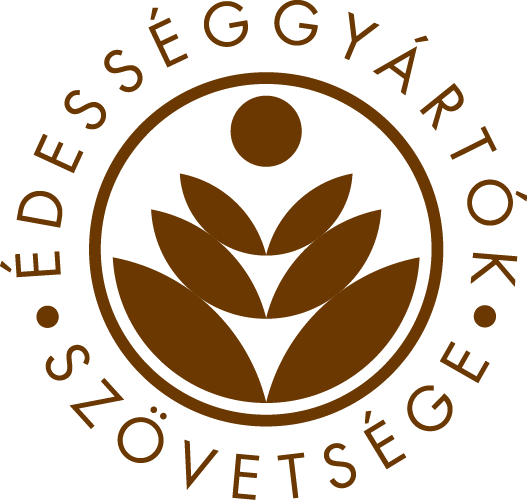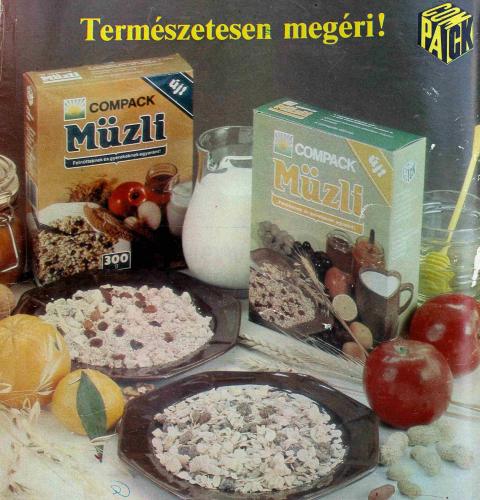Whilst the economic impact of coronavirus pandemic has led to declining sales in several categories of confectionery products, muesli, having consistently shown the fastest growth rate together with biscuits in the last two decades, continues to do well, reported the Association of Hungarian Confectionery Manufacturers at their press event that could be attended both in person and online in accordance with the epidemiological regulations. Guest speakers of the press conference provided an overview of the state of the confectionery industry in the shadow of COVID-19, that has a more encouraging prospect for the Christmas season after the difficult Easter period.
During the pandemic the food industry was primarily hit by the loss of the catering industry, the HoReCa sector including hotels, restaurants and cafés, and the significant decline in exports, which accounted for nearly 40 percent of turnover, said Dr Beáta Olga Felkai, Head of the Department of Food Economics and Quality Policy of the Ministry of Agriculture in her presentation, providing a comprehensive overview of the sector. Most of the more than 4,500 players in the domestic food industry are micro-enterprises, with about seventy large companies and three hundred medium-sized companies operating in the field. Whilst their profitability is constantly improving, the widespread use of advanced digital technologies needed for modernization and automation is not yet typical of the sector, making it more difficult for companies to adapt to the rapidly changing market conditions. Therefore, the Ministry of Agriculture subsidized food processing enterprises with nearly HUF 8 billion from the National Food Crisis Management Program developed as part of the Economic Protection Action Plan, which could be quickly accessed by the applicants with simplified administration.
Consumer demands in the confectionery market are also changing tangibly, and COVID-19 has also accelerated this process, said Sándor Sánta, President of the Association of Hungarian Confectionery Manufacturers. Mass interest is turning to healthy products, which represent a trend rather than a specific category. Functional sweets (e.g. products with high protein or increased vitamin or mineral content and energy bars) can be included here as well as various ‘free-from’ products – lactose, sugar or gluten-free items, which are no longer consumed only by those who has sensitivity to an ingredient – and light, i.e. energy-reduced products.
Judging from the signs, functional food increasingly got in the focus of consumers’ attention, who – stuck in teleworking and home office conditions – are looking for solutions that can ensure the adequate nutrient intake without time-consuming cooking or food ordering. Weight control, aiding digestion, maintaining the immune and vascular systems, or following a clinical (medically prescribed) diet also appear in their ambitions in addition to maintaining supplementary nutrition for doing sports.
The global market for functional products, which amounts to USD 189 billion worldwide, is projected to grow at an average of 8 percent annually over the next five years to reach USD 276 billion by the end of the period. Confectionery industry is mobilizing significant resources for innovation to serve the evolving needs of consumers, as Dr Ernő Gyimes, Associate Professor of the Institute of Food Engineering at the Faculty of Engineering of the University of Szeged analyzed in his presentation.
Cerbona brand name appeared in the domestic market in 1988, the following year our company started the production of muesli and cereal bars, which were new product categories in Hungary at that time – said Tamás Török, Foreign Trade Director of Cerbona Élelmiszergyártó Kft. Our corporate innovation has since responded to consumer needs with ever newer products, making Cerbona a market-leading brand in the categories of muesli, cereal bars, oat-flakes and puffed cereal bars too. Muesli, cereal bars and porridges rich in protein, fibre, vitamins and trace elements and are sugar-free, consumed before, during and after workouts being available in the Cerbona Sport program, as well as the new gluten- and lactose-free porridges are popular among domestic consumers. The company’s latest Raw Bar slices, for example, expand the range of the ‘free-from-all’ category, as they are purely plant-based, their natural taste and sugar content is yielded only by fruits, of which they contain an outstanding amount. Another product innovation of Cerbona is the family of dessert-flavoured cereal bars, with which followers of a healthy diet can also treat themselves.
Although the history of the cultivation of cereals dates back thousands of years, the story of muesli – at least under this name – surprisingly only began in the first half of the 20th century, we learned from the presentation of Dr Róbert Török, Deputy Director and Chief Museologist of the Hungarian Museum of Trade and Tourism. According to the manuals, muesli is a food consisting primarily of cereal flakes and crumbs of dried fruit, which can be consumed mostly with milk. Our word muesli, which is one of the main components of the German word Gemüse (i.e. greens, pottage vegetables), was formed on the basis of the reduced form of the Swiss German word Mus, i.e. pulp, puree, porridge. The word ‘muesli’ originated from its Swiss dialect and spread all over the world.

